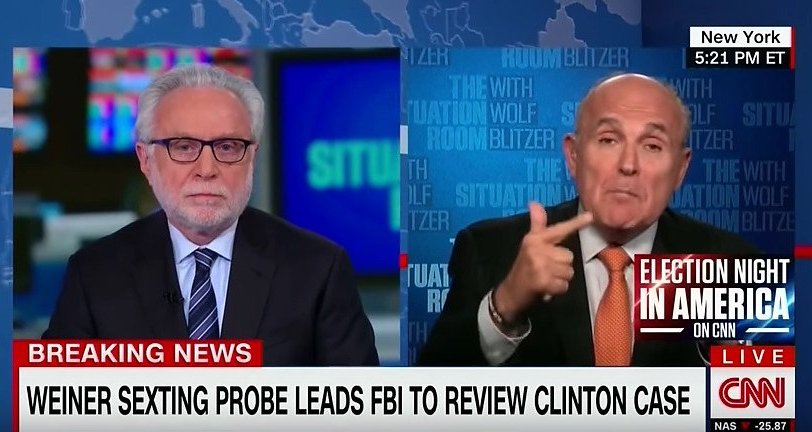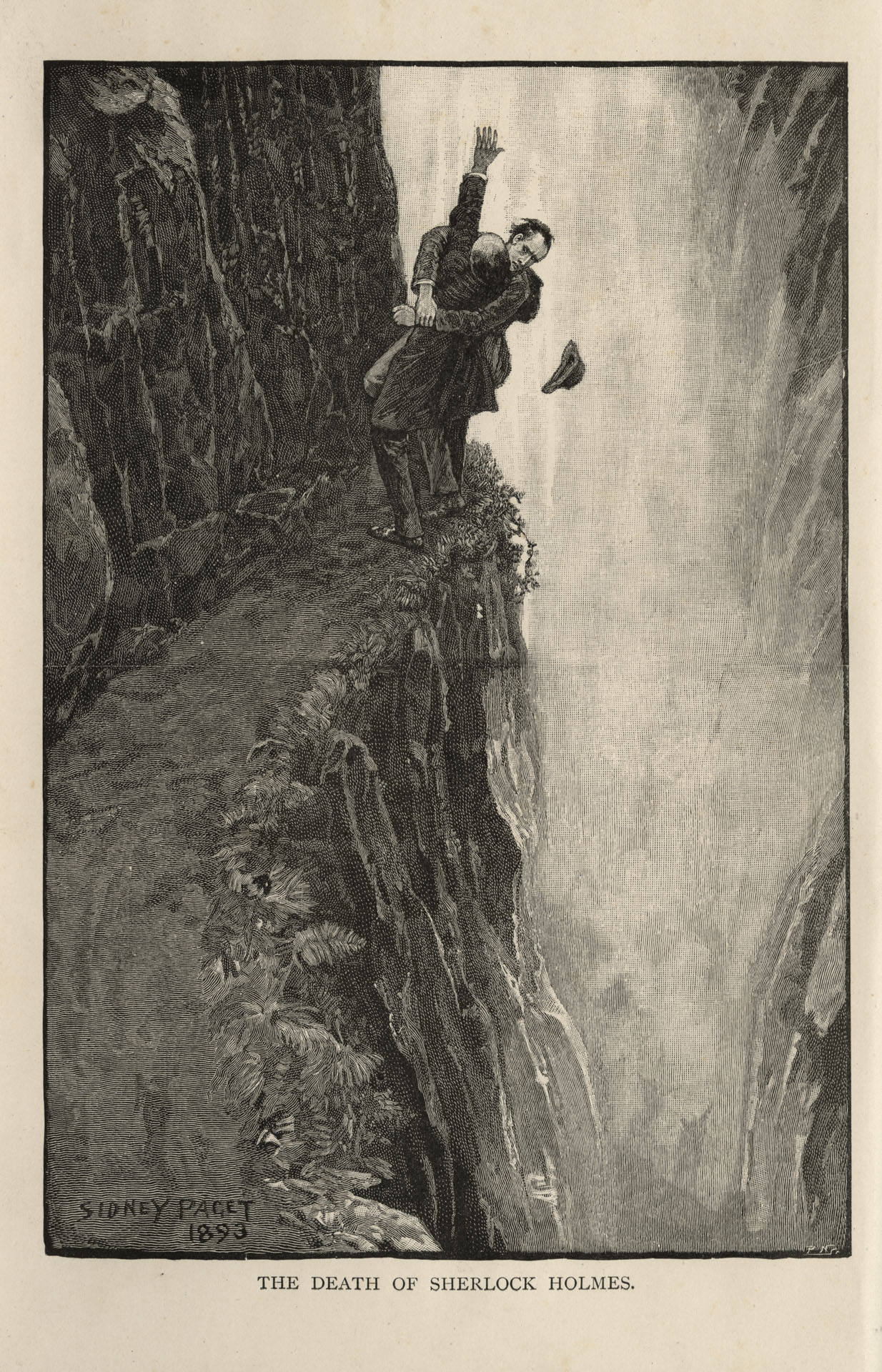Based on newly discovered emails, FBI Director James Comey is re-opening the investigation into Secretary Clinton’s email server.

In a letter to Congress, Director Comey could not spell out exactly what is contained in the new documents without further investigation. However, in a statement to FBI employees, the director explained his reasoning in releasing news to the public via Congress.
“We don’t ordinarily tell Congress about ongoing investigations, but here I feel an obligation to do so given that I testified repeatedly in recent months that our investigation was completed,” Comey said. “I also think it would be misleading to the American people were we not to supplement the record.”
The absence of clarity on this latest development, coming just 11 days before a national election, is startling to say the least.
Let’s step back and take a look at what we know.
“The emails were found during the search of a device in the FBI probe of former Rep. Anthony Weiner,” The Wall Street Journal writes (Oct. 29), “who is being investigated for allegedly sending sexually explicit messages to a minor, a person familiar with the case said. Mr. Weiner is married to Huma Abedin, a longtime senior aide of Mrs. Clinton who recently announced she and her husband were separating. …
“Many of the emails were discovered on a laptop used by both Ms. Abedin and Mr. Weiner… In searching the laptop, investigators found thousands of emails, and they determined earlier this week that some of the emails involved Ms. Abedin discussing work issues. Ms. Abedin was questioned earlier this year by the FBI in the Clinton email probe.
“Authorities haven’t yet determined how many emails involved work, or if any of those included classified information, these people said. They also haven’t determined if the work emails in question are copies of messages already reviewed by the FBI. …
“Mr. Comey said it wasn’t clear whether the new emails would be important to the probe. ‘The FBI cannot yet assess whether or not this material may be significant, and I cannot predict how long it will take us to complete this additional work,’ he wrote.”
As soon as Comey’s letter was announced, Trump headlined it at a rally in New Hampshire. Absent any quotes from Comey’s statement, Trump gives the mistaken impression to supporters that the FBI director is correcting an earlier mistake in judgment.
“I have great respect for the fact that the FBI and the D.O.J. are now willing to have the courage to right the horrible mistake that they made,” Trump said.
(This from the same man who, weeks earlier, called the FBI investigation “rigged.”)
Benjamin Wittes is editor in chief of Lawfare and a Senior Fellow in Governance Studies at the Brookings Institution. Wittes offers some clarity into what Comey’s letter means and doesn’t mean.
“When the FBI wants to say it is reopening an investigation, it knows perfectly well how to say that. In this case, the investigation was actually never formally closed, so it doesn’t need to be reopened. The relevance of this letter is thus likely not that some explosive new evidence of Clinton criminality has suddenly emerged.
“It is, rather, that Comey made a set of representations to Congress that have been complicated by new information, apparently from the Anthony Weiner sexting case. So he’s informing Congress of that fact before the election.
“Comey represented to Congress that the Clinton email investigation was ‘complete.’ But as the letter relates, new emails have now come to the bureau’s attention that appear relevant to the email investigation. …this fact renders his prior statement to Congress no longer true.
“The key point here, in other words, is not that Comey is ‘reopening’ a closed matter because of some bombshell. It is that he is amending his public testimony to Congress that the FBI is done while the bureau examines new material that may or may not have implications for investigative conclusions previously reached.
“Here’s the subtext: Comey and FBI investigated Clinton hard, and when various legal and practical hurdles made it impossible to move forward with any kind of criminal case against her, Comey stated his view—quite unflattering to her—that her behavior had been ‘extremely careless’ with highly sensitive information.
“He did this in public because he made a decision that Clinton and her team deserved public scrutiny for their acts, because she is a major party candidate for president. This is why he went out of his way—maybe too far—in revealing unfiltered information so that the public had the opportunity to consider it before voting for or against her.
“This summer… Comey closed the investigation, stated his reasons, and took arrows both from those who thought he should have gone forward with a case and those who thought he should have said much less than he did.
“And he testified before Congress that he was finished.
“The trouble is that now he has learned something which he thinks may complicate his earlier judgments. And he has authorized additional investigative steps to find out. He found out that he is not finished. So the question is whether to tell Congress (and the public) or not.
“Even at the risk of helping Trump, Comey has notified Congress (and the world) about it so as to clarify his prior testimony. This allows voters to judge how to consider this before the election—even though he will almost surely not be able to say anything more until after the election. It’s a way of not pretending that the investigation is ‘complete’ when he knows there is some degree of residual issue.”
Wittes then makes a reasonable case for Comey making his recent action public:
“If you’re inclined to be angry with Comey over this, imagine that he had not said something and it emerged after the election that, having testified that the investigation was complete, he authorized additional investigation of a new trove of emails. …
“But what you can’t reasonably say is that Comey has been anyone’s political lackey. Over the howling objections of many Republicans, he ended the Clinton email investigation, concluding that ‘no reasonable prosecutor’ would go forward with a case. Over the snarls of the Clinton forces, at the same time, he commented quite disparagingly about the behavior of the woman who is likely to become his boss. And now, with the election only days away, he has amended his prior resolution of the case to deal with new information.
“Say what you will about the FBI, but it’s surely been independent.”
So, clearly I (along with a few million others), am wrong to conclude that Comey is “re-opening” the Clinton case. As Wittes says, “the investigation was actually never formally closed.”
Attempting to answer the many questions surrounding this issue, The New York Times writes (Oct. 30), “In the coming days, the F.B.I. will begin conducting a smaller version of the larger investigation it completed in July. Agents will go through the emails found on the laptop to determine whether they contain classified information. …
“The newly discovered emails may — or may not — provide new information to the F.B.I.”
To the question of whether anyone, including Secretary Clinton, is in legal jeopardy as a result of this new discovery, The Times adds, “The F.B.I. did not recommend charges in July because agents had found no evidence that anyone had tried to impede their investigation or intentionally mishandle classified materials. If the new emails indicate that type of behavior, the F.B.I. will most likely want to investigate further.”
What happens next?
It appears unlikely that the FBI will be able to examine thousands of emails on the Weiner/Abedin laptop and reach a conclusion before the election on November 8th.
From an ethical standpoint, Comey’s decision was a particularly difficult one: a choice between transparency to the American public prior to an election, or strictly following DOJ/FBI procedures where information would never be disclosed until an investigation had concluded.
In several interviews with former Assistant Attorney General for the Criminal Division Jo Ann Harris about her investigation into misconduct by the Office of Independent Counsel, she made clear to me some of those procedures:
“ ‘We will follow the Department of Justice (DOJ) guidelines on the investigation…’ Harris added, ‘I was told not to disclose that I was working on the Lewinsky matter, and, in fact, it was never public record that I was appointed. My friends didn’t even know.’ ”
While the Director of the FBI should never be pulled into a political battle, as he as been, (and was clearly the case with Secret Service Director Lew Merletti), the nature of this case, with an individual involved in running for President, along with Comey’s previous public statements about the issue, places the director in a very difficult position, both legally and ethically.
Given what we know of Comey’s integrity and what little information provided to the public by this new revelation, the director’s letter appears appropriately written with little detail — simply because he doesn’t know, yet maintaining the standard of following evidence and investigative procedures. His key points being: 1) “…the existence of emails that appear to be pertinent to the investigation…” 2) “…the FBI should take appropriate investigative steps… to determine whether they contain classified information…” and 3) “the FBI cannot yet assess whether or not this material may be significant…”
Until the FBI completes their investigation into these new documents, we are obliged to suspend judgment.
Comments
Leave a Comment










Great article, Jim.
I would add that the Clinton campaign, who applauded Comey’s decision back in July, are now disparaging him. The F.B.I. received a warrant for an estimated 650,000 emails on a device that Huma Abedin claimed under oath that she gave all her devices up. Once again the WikiLeaks emails of Podesta last year was questioning her having a private server. The cloud continues.
Jim, have you seen the latest on WikiLeaks and Donna Brazile? Once again, she gave a question to Clinton campaign before a debate. One of the questions directed to HRC tomorrow is from a woman with a rash. Her family has lead poison and she will ask what if anything, will Hillary do as president to help ppl of flint.
Jim, if true, once again ethically this is very disturbing.